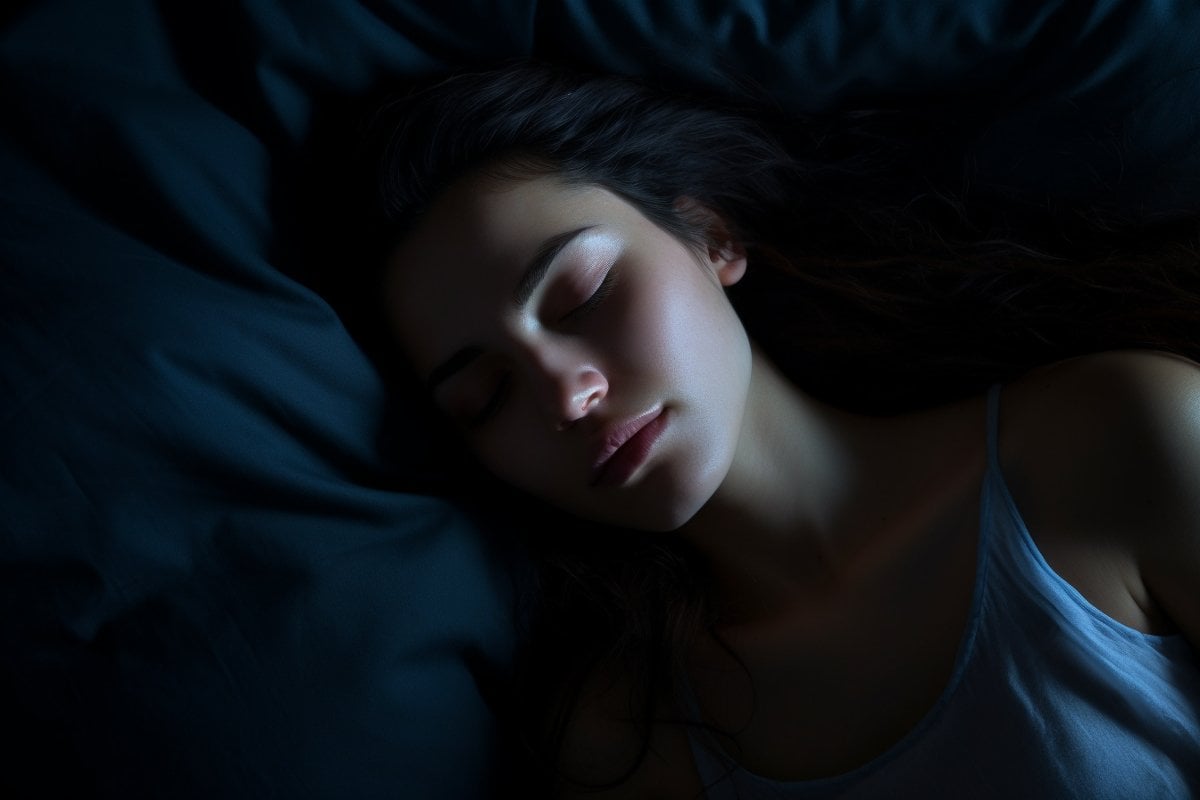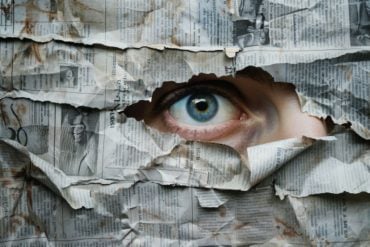Summary: Researchers find a connection between consistently sleeping less than five hours nightly and an increased risk of developing depressive symptoms. Initially believed that poor sleep was a mere side effect of mental illness, the study suggests sleep might precede the onset of depression.
Using genetic data from 7,146 individuals, they identified that those genetically predisposed to shorter sleep were more prone to depression. Contrarily, a genetic inclination for depression didn’t increase the odds of lesser sleep.
Key Facts:
- People with a stronger genetic predisposition to short sleep (<5 hours nightly) had a heightened likelihood of developing depressive symptoms over a span of 4-12 years.
- Individuals sleeping five hours or less were 2.5 times likelier to show depressive symptoms. Yet, those with depressive symptoms had only a one-third increased chance of short sleep.
- Sleep duration and depression both carry some hereditary component, with twin studies indicating 35% heritability for depression and 40% for sleep duration variances.
Source: UCL
Consistently sleeping less than five hours a night might raise the risk of developing depressive symptoms, according to a new genetic study led by UCL (University College London) researchers.
Historically, poor sleep has been seen as a side effect of mental ill health, but this study found that the link between sleep and mental illness is more complex.
The study, published in the journal Translational Psychiatry, analysed data from people with an average age of 65 and found short sleep was associated with the onset of depressive symptoms.

Lead author Odessa S. Hamilton (UCL Institute of Epidemiology & Health Care) said: “We have this chicken or egg scenario between suboptimal sleep duration and depression, they frequently cooccur, but which comes first is largely unresolved. Using genetic susceptibility to disease we determined that sleep likely precedes depressive symptoms, rather than the inverse.”
For the study, the researchers used genetic and health data from 7,146 people recruited by the English Longitudinal Study of Ageing (ELSA), a nationally representative population study in England.
They found that people with a stronger genetic predisposition to short sleep (less than five hours in a given night) were more likely to develop depressive symptoms over 4-12 years, but that people with a greater genetic predisposition to depression did not have an increased likelihood of short sleep.
Senior author Dr Olesya Ajnakina (UCL Institute of Epidemiology & Health Care and the Institute of Psychiatry, Psychology & Neuroscience at King’s College London) said: “Short and long sleep durations, along with depression, are major contributors to public health burden that are highly heritable. Polygenic scores, indices of an individual’s genetic propensity for a trait, are thought to be key in beginning to understand the nature of sleep duration and depressive symptoms.”
The researchers assessed the strength of genetic predisposition among the ELSA participants using findings from previous genome-wide association studies that have identified thousands of genetic variants linked to a higher likelihood of developing depression and short or long sleep.
As part of a number of separate analyses to investigate the robustness of their results, the research team also looked at non-genetic associations between depressive symptoms and sleep duration.
They found that people sleeping five hours or less were 2.5 times more likely to develop depressive symptoms, while people with depressive symptoms were a third more likely to suffer from short sleep. They adjusted for a rich selection of factors that could affect the results such as education, wealth, smoking status, physical activity and limiting longstanding illness.
The researchers also found a link between sleeping long and developing depressive symptoms, with participants sleeping longer than nine hours being 1.5 times more likely to develop depressive symptoms than those who sleep an average of seven hours. However, depressive symptoms were not associated with sleeping longer four to 12 years later, which corresponded to the genetic findings.
Professor Andrew Steptoe (Head of Behavioural Science and Health, UCL Institute of Epidemiology & Health Care) said: “Suboptimal sleep and depression increase with age, and with the worldwide phenomenon of population ageing there is a growing need to better understand the mechanism connecting depression and a lack of sleep. This study lays important groundwork for future investigations on the intersection of genetics, sleep, and depressive symptoms.”
Overall, the participants in the study had an average of seven hours’ sleep a night. More than 10% slept for less than five hours a night at the start of the study period, rising to over 15% at the end of the study period, and the proportion of participants classed as having depressive symptoms increased by ~3 percentage points, from 8.75-11.47%.
Both sleep duration and depression are partly inherited from one generation to the next. Earlier twin studies have suggested depression is about 35% heritable, and that genetic differences account for 40% of the variance in sleep duration.
In the study, data on sleep and depressive symptoms were combined from two ELSA surveys conducted two years apart, as sleep duration and depression are known to fluctuate over time.
About this sleep and depression research news
Author: Mark Greaves
Source: UCL
Contact: Mark Greaves – UCL
Image: The image is credited to Neuroscience News
Original Research: Open access.
“Polygenic Predisposition, Sleep Duration, and Depression: Evidence from a Prospective Population-Based Cohort” by Olesya Ajnakina et al. Translational Psychiatry
Abstract
Polygenic Predisposition, Sleep Duration, and Depression: Evidence from a Prospective Population-Based Cohort
Suboptimal sleep durations and depression frequently cooccur. Short-sleep and long-sleep are commonly thought of as symptoms of depression, but a growing literature suggests that they may be prodromal. While each represents a process of mutual influence, the directionality between them remains unclear.
Using polygenic scores (PGS), we investigate the prospective direction involved in suboptimal sleep durations and depression.
Male and female participants, aged ≥50, were recruited from the English Longitudinal Study of Ageing (ELSA). PGS for sleep duration, short-sleep, and long-sleep were calculated using summary statistics data from the UK Biobank cohort.
Sleep duration, categorised into short-sleep (“≤5 h”), optimal-sleep (“>5 to <9 h”), and long-sleep (“≥9 h”), was measured at baseline and across an average 8-year follow-up. Subclinical depression (Centre for Epidemiological Studies Depression Scale [≥4 of 7]) was also ascertained at baseline and across an average 8-year follow-up. One standard deviation increase in PGS for short-sleep was associated with 14% higher odds of depression onset (95% CI = 1.03–1.25, p = 0.008).
However, PGS for sleep duration (OR = 0.92, 95% CI = 0.84–1.00, p = 0.053) and long-sleep (OR = 0.97, 95% CI = 0.89–1.06, p = 0.544) were not associated with depression onset during follow-up.
During the same period, PGS for depression was not associated with overall sleep duration, short-sleep, or long-sleep. Polygenic predisposition to short-sleep was associated with depression onset over an average 8-year period.
However, polygenic predisposition to depression was not associated with overall sleep duration, short-sleep or long-sleep, suggesting different mechanisms underlie the relationship between depression and the subsequent onset of suboptimal sleep durations in older adults.







